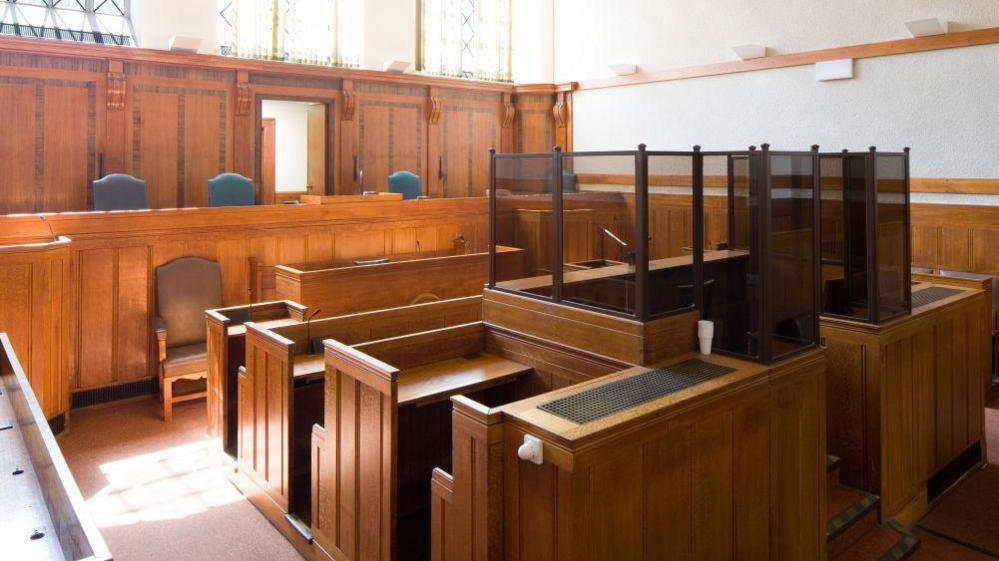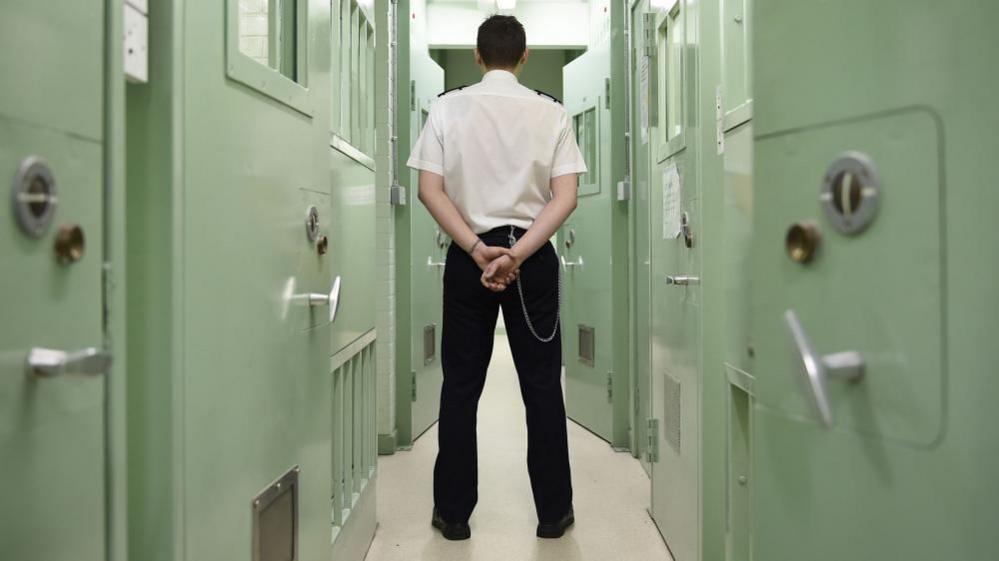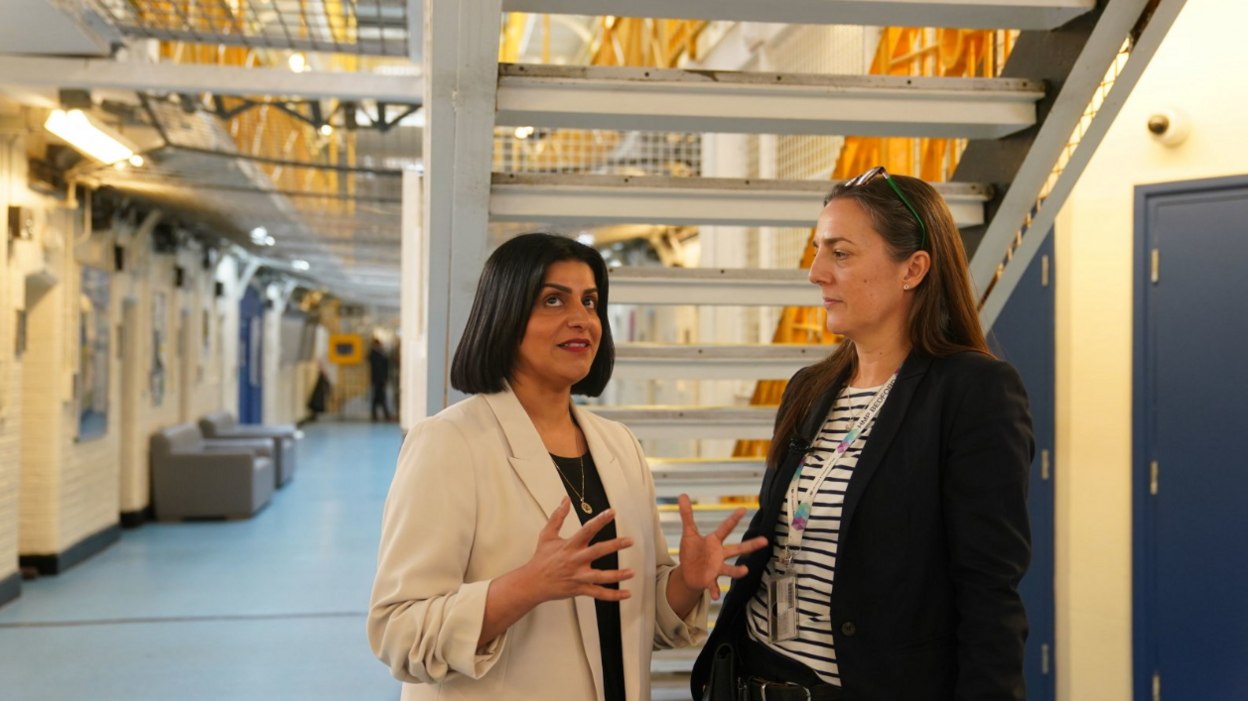Courts told to delay sentencings over prison space

The direction to the courts is the second emergency measure aimed at addressing the overcrowding crisis
- Published
The judiciary has asked magistrates' courts to delay sending some criminals to prison in the coming weeks because of the unprecedented overcrowding crisis.
The direction to court managers comes as officials battle daily to find cells for offenders, ahead of a new release strategy in September.
In the instruction, a senior judge urged court managers to delay the sentencing of some offenders if they are likely to be jailed, but are currently on bail.
Official figures show that the number of prison beds available across England and Wales has fallen to the point where there are now only a few available in each institution.
As of Friday morning, there were 88,234 people in jails. The population had risen by 738 the past fortnight, leaving about 1,100 spare beds.
Many of the new inmates are either convicted rioters or suspects being held on remand before facing trial for their alleged part in disorder that occurred across England and Northern Ireland in late July and early August.
The direction to magistrates' courts managers, sent on Wednesday, came from Lord Justice Green, a senior judge who overseas the workload of the courts.
He asked local officials to carefully consider how they were scheduling cases ahead of the Ministry of Justice’s plan for more early releases, which is set to come into force on 10 September.
The judge wrote that local court managers should review all cases listed for sentence up to and including 6 September where the defendant is currently on bail. If a jail sentence is a possible outcome, consideration should be given to rescheduling the hearing as soon as possible, but not earlier than 10 September.
“The following direction is made in the context of the current challenges in our prisons,” wrote the judge.
"Every case must be considered on an individual basis and decisions must be made on the basis of the interests of justice. It follows that this needs to be a careful process.”
The wording of the direction is not a blanket order to delay the sentencing of every offender who may be jailed - and it only affects those who would face a maximum of six months - but it is the second emergency measure in a week aimed at managing the crisis in jails.
The Attorney General told the BBC serious criminals would still be kept in cells, whether they be in prisons or police stations, but acknowledged the shortage of places.
"We’ve inherited an absolute mess," Lord Hermer KC said. "We’ve taken very early steps to try and improve that and, although they remain tight, anybody who commits a serious offence will find themselves in a cell."
On Monday, the government asked police in northern England and most of the midlands to keep newly-charged suspects waiting for a court appearance in police cells until prison space is available.
From 10 September, some offenders will be released on a licence after serving 40% of their sentences in prison. That plan aims to free up several thousand cells, but it is no longer clear if it will be enough because of all the additional offenders and suspects related to the riots.
Tom Franklin, head of the Magistrates’ Association, said the direction to local courts was “another sticking plaster”.
“This latest emergency measure – while it may be necessary to deal with prison overcrowding until the big release of prisoners on 10 September – demonstrates the need for an injection of more resources at every stage of the justice process,” he said.
“We also need a grown-up discussion about the purpose of prison, and indeed other types of sentences such as community sentences.”
Related topics
- Published19 August 2024

- Published12 July 2024
